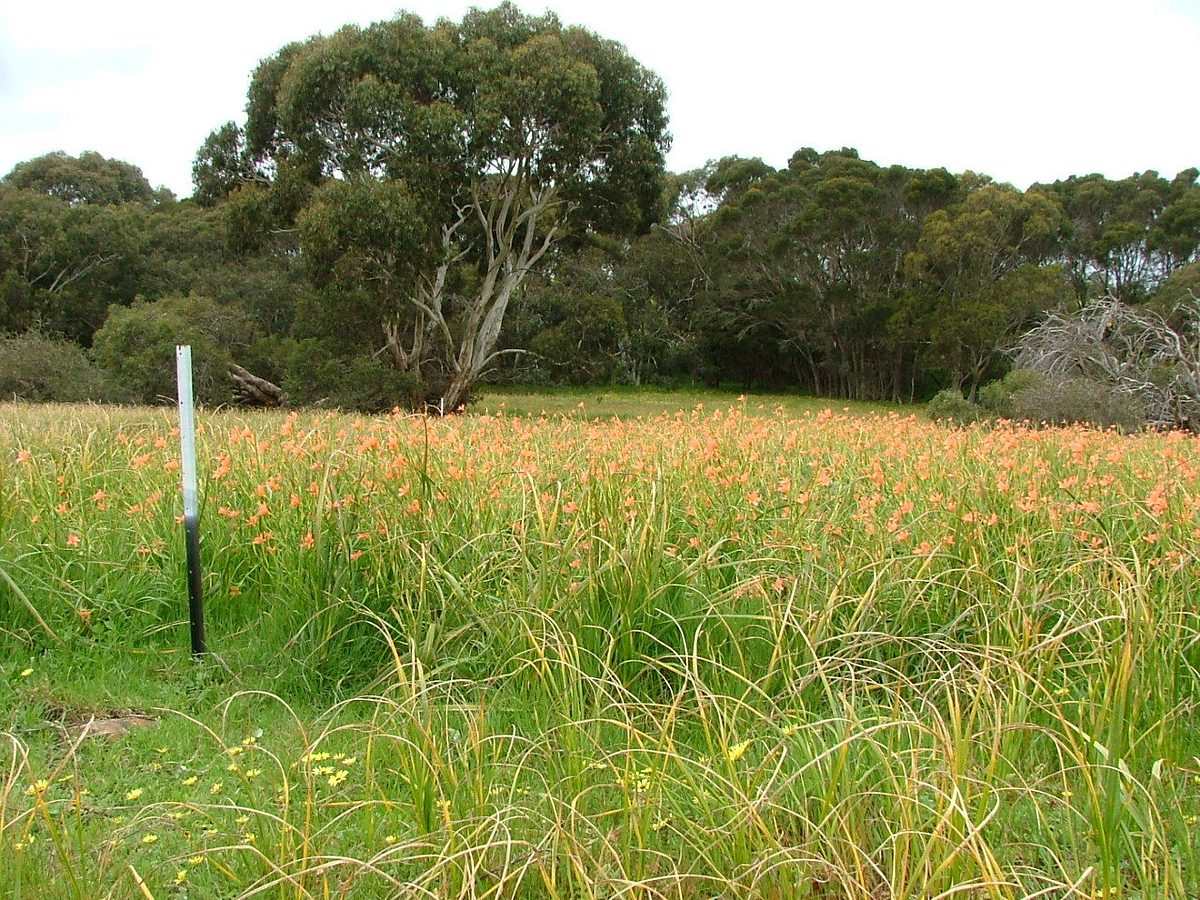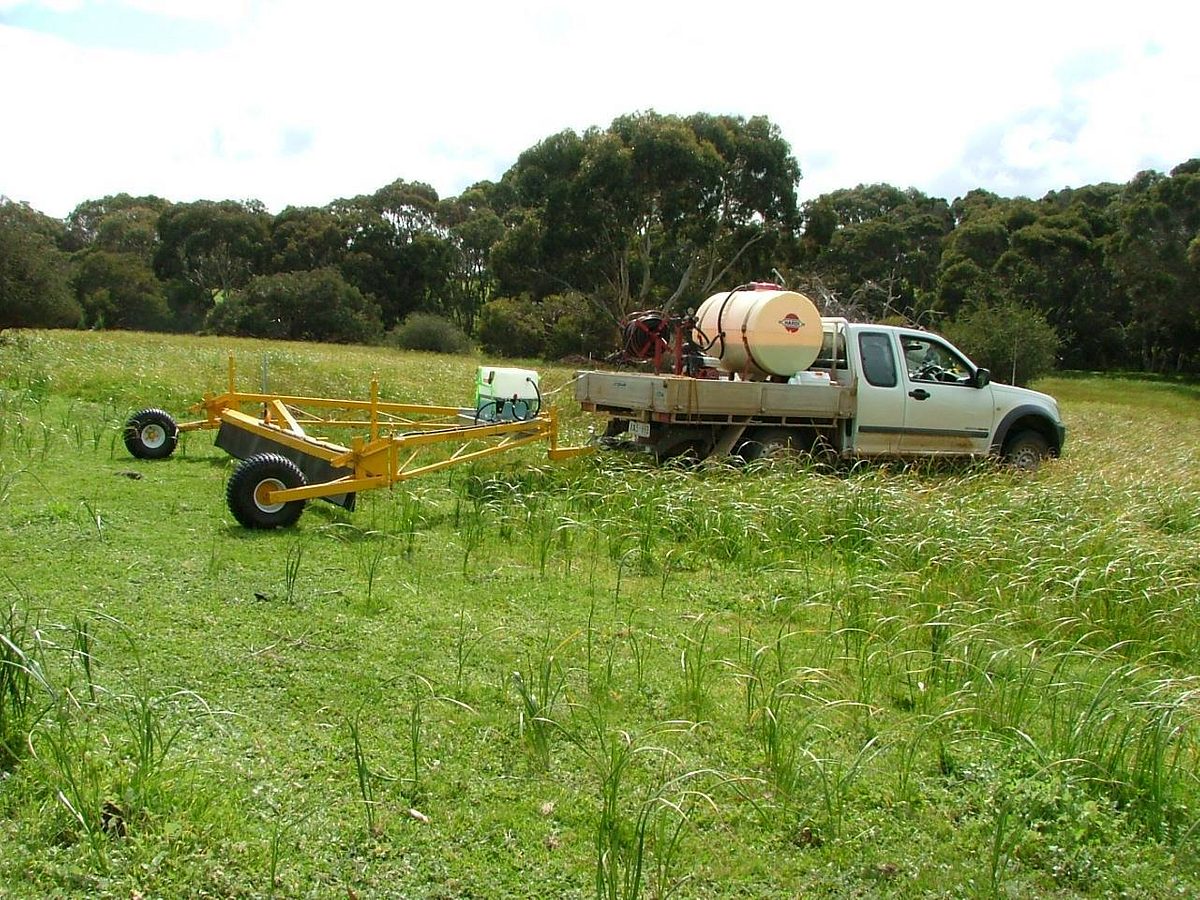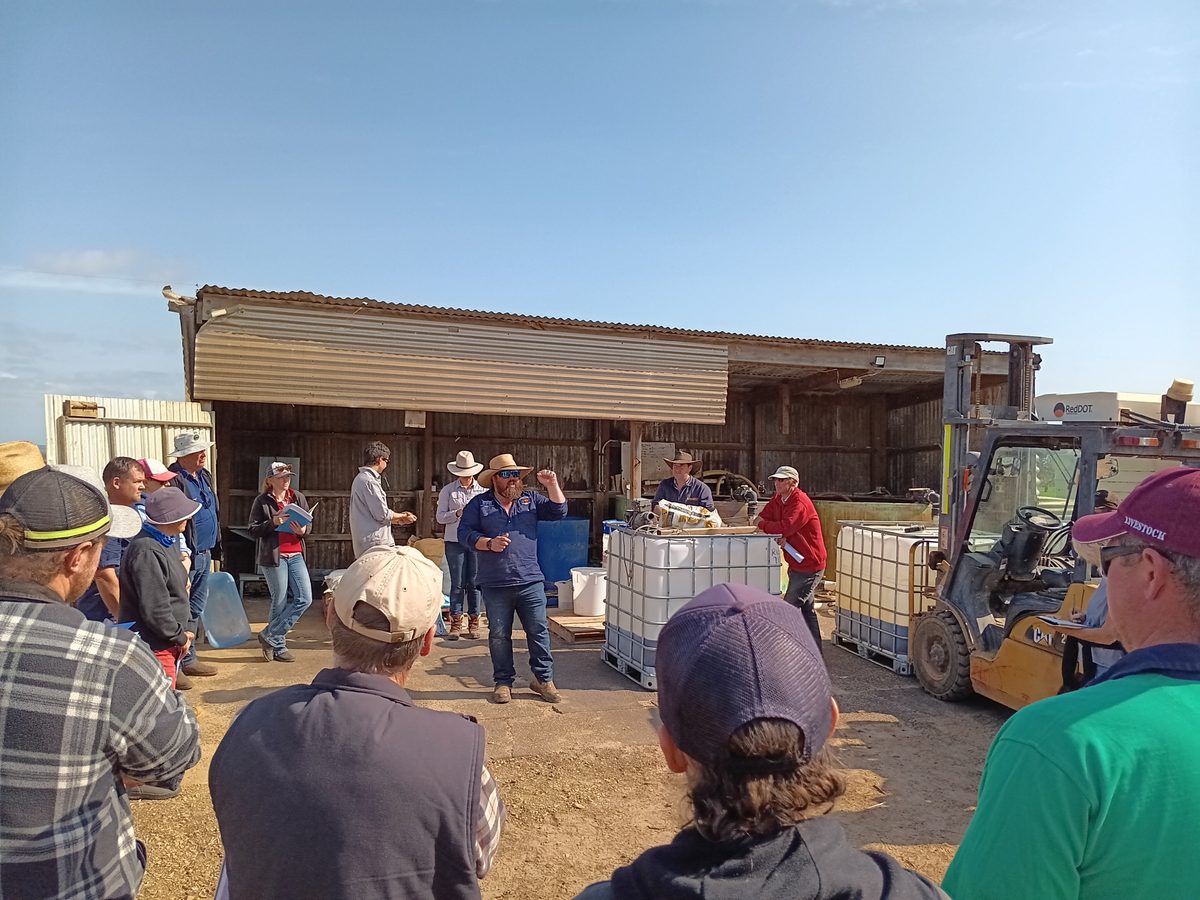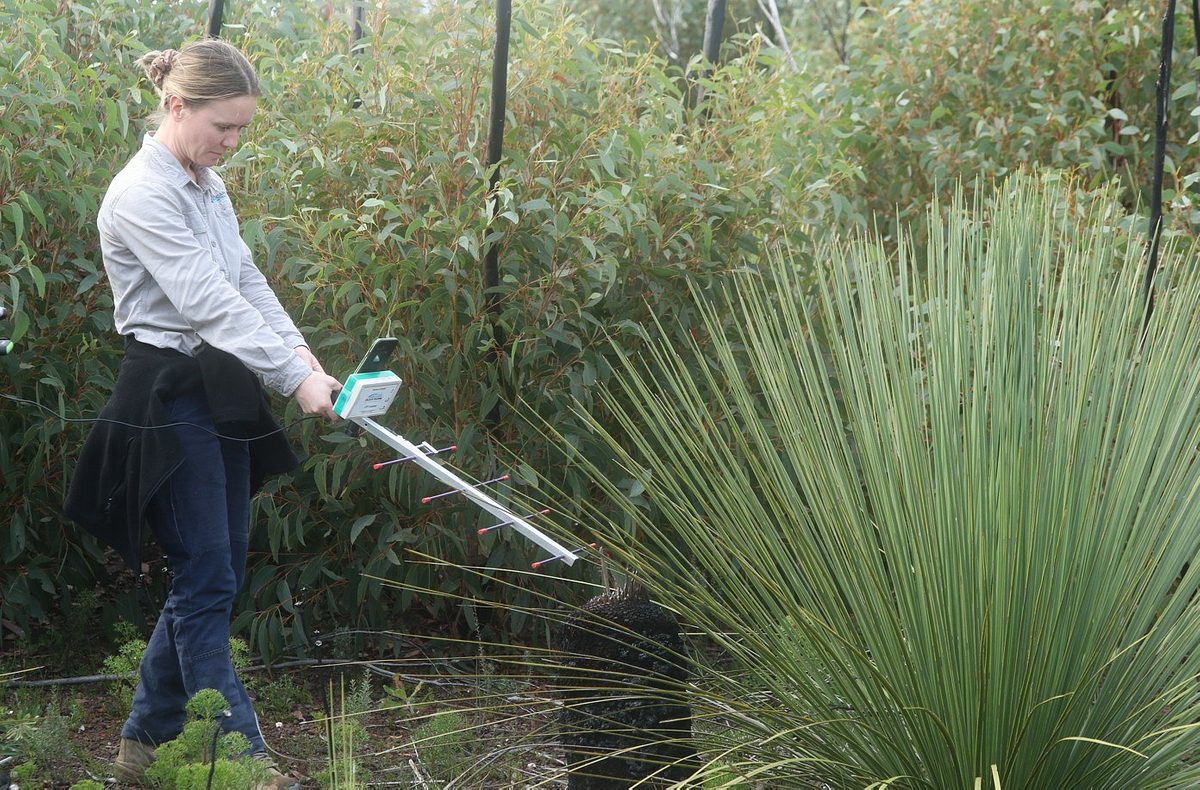Time to tackle toxic Cape tulip weed
Time to tackle toxic Cape tulip weed
To prevent the spread of one-leaf Cape Tulip, it is crucial that control measures are taken during the winter months to prevent it from spreading.
Cape tulip was introduced to Australia 150 years ago as a garden plant, but it is now a perennial weed on Kangaroo Island and toxic to both sheep and cattle.
Easily recognised by its strap-like leaf and orange flowers, which appear in early spring, Cape tulip invades agricultural lands and open areas of native vegetation (pictured).
Natural Resources Kangaroo Island Animal and Plant Control Officer Jason Walter said it is important to treat the weed before it begins to reproduce.
“Given the life-cycle of the Cape tulip weed and its reproduction, it is crucial to treat the weed between the end of June and the start of September, before the weed starts to flower and seed,” he said.
“The seed is spread by wind, water, and in produce. Both the corms and the seed can be dispersed in contaminated soil or mud by farm machinery, stock, feral pigs, and can even be transported in hay cut from infested paddocks.

Slashing can also be used to suppress seeds if there is no opportunity for chemical or physical control. Mature, dry stands with seed heads should not be slashed because of the risk of spreading the seeds.
Richard Trethewey, Presiding Member of the Natural Resources Management Board, says that although stock will try to avoid the plant it is still a risk.
“All parts of the Cape Tulip plant are toxic to both sheep and cattle and although stock will avoid feeding on established plants where possible it can still be ingested, particularly by cattle and spread in its manure. The selective grazing by stock can also result in increased paddock cover of Cape tulip, aiding the spreading of the weed.
Natural Resources Kangaroo Island is available to help provide advice to farmers on the best course of action. It also has weed wipers and other equipment for hire to treat the weed.
For further information, please refer to the One-leaf Cape Tulip Management Strategy available at the Kangaroo Island Natural Resources website, or contact Jason Walter on 0418 708 557 or email Jason.Walter@sa.gov.au.




